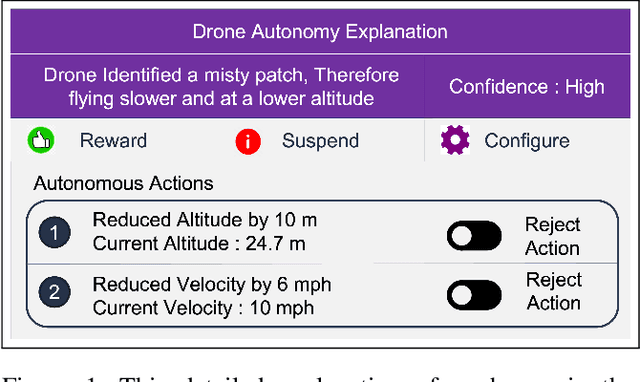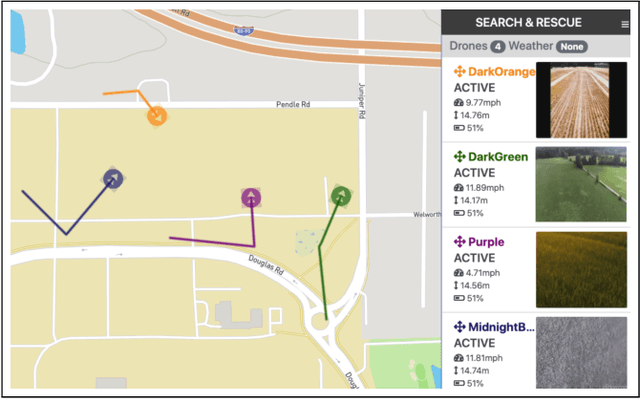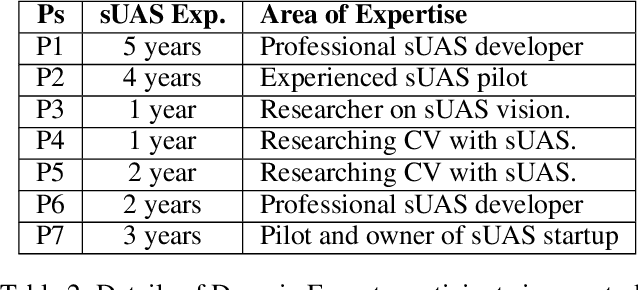Explaining Autonomous Decisions in Swarms of Human-on-the-Loop Small Unmanned Aerial Systems
Paper and Code
Sep 05, 2021



Rapid advancements in Artificial Intelligence have shifted the focus from traditional human-directed robots to fully autonomous ones that do not require explicit human control. These are commonly referred to as Human-on-the-Loop (HotL) systems. Transparency of HotL systems necessitates clear explanations of autonomous behavior so that humans are aware of what is happening in the environment and can understand why robots behave in a certain way. However, in complex multi-robot environments, especially those in which the robots are autonomous, mobile, and require intermittent interventions, humans may struggle to maintain situational awareness. Presenting humans with rich explanations of autonomous behavior tends to overload them with too much information and negatively affect their understanding of the situation. Therefore, explaining the autonomous behavior or autonomy of multiple robots creates a design tension that demands careful investigation. This paper examines the User Interface (UI) design trade-offs associated with providing timely and detailed explanations of autonomous behavior for swarms of small Unmanned Aerial Systems (sUAS) or drones. We analyze the impact of UI design choices on human awareness of the situation. We conducted multiple user studies with both inexperienced and expert sUAS operators to present our design solution and provide initial guidelines for designing the HotL multi-sUAS interface.
 Add to Chrome
Add to Chrome Add to Firefox
Add to Firefox Add to Edge
Add to Edge